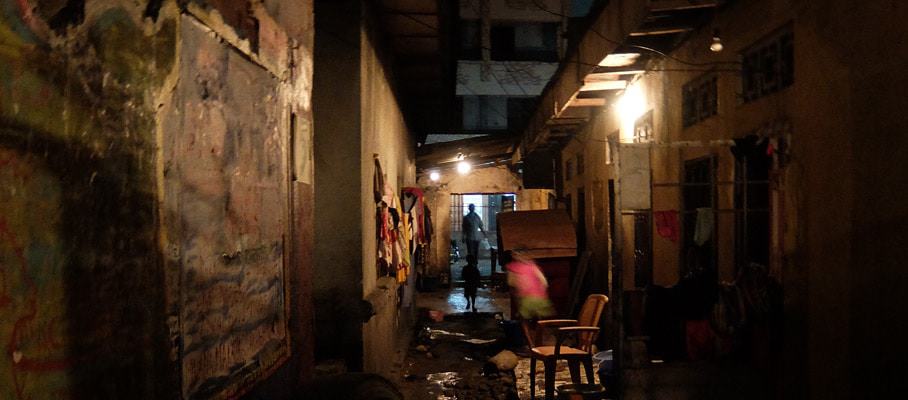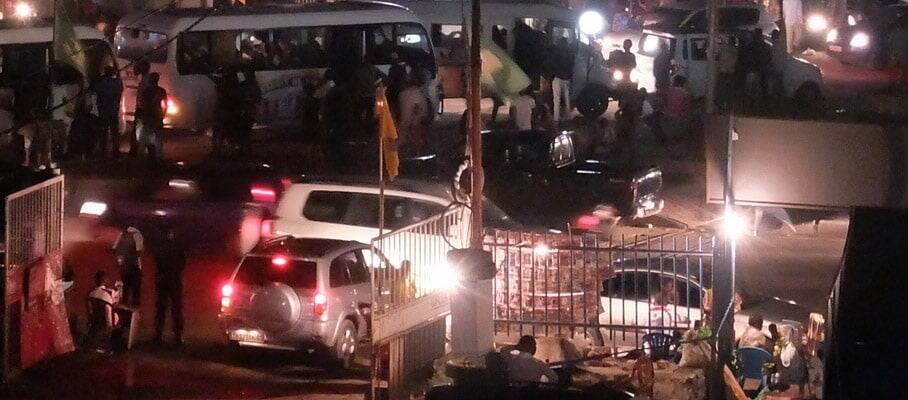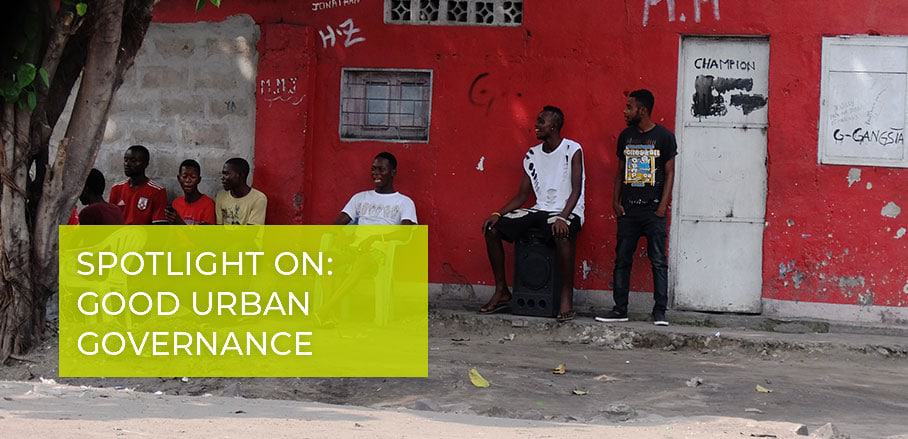Urban Safety and Good Urban Governance: Examples from Kinshasa
“Kulunas” – youth gangs – have been part of Kinshasa’s neighbourhoods for two decades. Marc-André Lagrange and Thierry Vircoulon analyse their origins and why their ever more violent repression is not going to increase safety in Kinshasa.
Understanding Street Gangs in Kinshasa
As African cities grow, they experience challenging security issues. One of them is the emergence of youth gangs. Kinshasa, the capital city of the Democratic Republic of Congo, is no exception. While Kinshasa’s population was about half a million in 1960, it is now estimated between 12 and 15 million and is the biggest city in the Central Africa region. The majority of the city’s inhabitants are both poor and young (under 25 years of age). Unmanageable urbanisation and the “poverty trap” have been the perfect recipe for the rise of youth gangs called “kulunas”, with the long-term disarray of urban governance constituting the background of this criminal problem.
They appeared at the start of the 21st century as the product of the deep political, economic and social crisis of the late 1990s. At that time, the economic decline and the state collapse led to a complete breakdown of law and order. In a period of anarchy and civil war, the street gangs emerged in the poorest slums of Kinshasa as a way to survive by any means possible. Since then they have proliferated and institutionalised.
Since the early 2000s the Kuluna gangs have expanded into the capital city and are everywhere in Kinshasa except for the city centre, Gombe, where big businesses, ministries, and embassies are located.
The structure of the street gangs is based on an informal hierarchy. The Kuluna gangs are extremely local: they ‘“own’” and “protect” a neighbourhood, they provide safety for their Kinshasa neighbourhood. This means that they attack the strangers passing in by but they do not target those who live there.

Passage on Avenue Kato in Kinshasa © Veronique Moufflet
Gang fighting is the key to fame and glory and an essential part of the Kuluna way of life, almost as important as criminal activities – yet crime is only a way of getting food, alcohol and drugs. At nightfall, youth gangs transform the streets of Kinshasa’s slums into fighting arenas.
Safety in Kinshasa: “The Coop” versus Legitimate Security Personnel
Despite a discourse describing them as living on the fringe of the society, the Kulunas are well integrated into their urban environment. They are not like the “Sheguey” (street children) who are abandoned by their family and considered sorcerers. The local authorities, such as the “chefs de quartier” or “chefs de rue,” know and interact with them. Far from the cliché about gang members, they get jobs in the informal economy and are not social outcasts.

Rond Point Victoire in Matonge at Kinshasa © Veronique Moufflet
In addition, they have built ties with the security forces and the politicians of the city. The political parties generally use the Kuluna gangs as a workforce. Politicians hire them for various purposes, all related to the widespread use of violence in the political arena. The Kulunas are tasked with intimidating political rivals, sabotaging political rivals’ public gatherings, and providing close protection to politicians.
But the most lucrative criminal partnerships of the Kuluna gangs is the one with the security forces. Policemen and military officers are paid to turn a blind eye, and they are subcontracting some criminal activities (mainly theft and robberies) to the youth gangs. This illicit cooperative practice between the law-enforcement agencies and the criminals is called « the ‘coop’ » – and is quite common. The security personnel are also involved into the gangs’ businesses: they sometimes provide the gangs with weapons, information, and protection, and are re-selling the stolen goods. As a result of the cooperation between the police and Kuluna gangs, policemen go as far as helping some gangs to fight against their rivals and using their influence in case of arrest.
What Options for More Safety in Kinshasa?
Since 2013 the Congolese authorities have launched several anti-Kuluna operations – the most notorious being Likofi 1. During the first Operation Likofi between November 2013 and February 2014, the Congolese police summarily executed at least 51 young men and boys and forcibly disappeared 31 others. However, the brutal repression of youth gangs by police forces has neither solved nor contained the Kuluna problem, and thus has not advanced safety in Kinshasa, as it does not address poverty and bad governance, the root causes of the Kuluna phenomenon. The anti-Covid19 measures such as lockdown and closure of the nightlife economy have exacerbated street gangs’ dynamics.
After almost ten years of unsuccessful anti-gang operations in Kinshasa, the conclusion is fourfold:
- the illicit partnership between gangs, politicians and policemen makes the legal response ineffective. For gang members to be prosecuted, this partnership needs to be untangled. Complicit policemen and politicians should also be investigated. The proliferation of gangs and police and political corruption are two interlinked issues.
- the urban security governance should not only focus on repression, it should also include prevention through job creation. The Kinshasa slums will remain the recruitment pool of the Kuluna gangs as long as the youths will be trapped in poverty. A job creation programme targeting the poor youths is essential in the fight against the gangs. This should be designed and implemented by the city authorities and could be funded jointly by the municipality and some donors. It will reduce the economic attractiveness of the gangs.
- the provision of security to slums’ dwellers is also important to reduce the gang problem. Given the lawlessness prevailing in the slums, the street gangs play a neighbourhood protection role and de facto replace the police. The restoration of security by legitimate state actors should also be part of the response.
- as urban population growth is merely out of control in Kinshasa, the urban security governance is going to be a major challenge in the coming years. Political attention and financial effort for urban governance are needed if the Congolese authorities want to make Kinshasa more liveable in the future.
This article is based on a study « Criminals or vigilantes? The Kuluna gangs of the Democratic Republic of Congo » published by the Global Initiative Against Transnational Organized Crime in May 2021.
